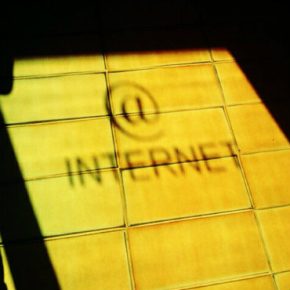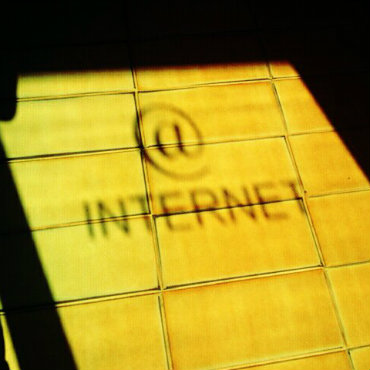
(Gerard Romans Camps, CC BY)
„Besides the marked digital divide between urban and rural areas, the country needs to develop policies that would help both individuals and business benefit from the opportunities associated with the internet,” the World Bank noted in its report „Reaping Digital Dividends: Leveraging the Internet for Development in Europe and Central Asia,” released in March.
“We are clearly seeing that internet access alone does not automatically translate into economic gains,” said Hans Timmer, Chief Economist for the European and Central Asia region of the World Bank. “Given their level of technological development, countries around Europe should be doing better in terms of e-commerce, but we are not seeing the Google or Facebooks emerging out of Europe just yet,” Timmer added.
„Romania’s case shows that fast internet is not enough to create a competitive digital economy. While nine of the world’s top fifteen cities with the fastest broadband internet are in Romania, less than 10 per cent of the local companies use cloud services and under 20 per cent of unemployed Romanians use the internet to look for jobs,” the World Bank pointed out.
While overall urban areas tend to have greater internet connectivity than rural areas, in Romania and Bulgaria the urban-rural divide in network access is greater than 30 percentage points. According to the World Bank report, Romania had the lowest percentage of regular internet users in the EU (48 per cent) and 39 per cent of the Romanian population never used the internet.
Meanwhile Romania ranks second in the EU by the number of subscriptions to fast broadband networks, available to 59 per cent of users. Having built its internet infrastructure more recently, Romania benefits from the most advanced fiber technologies. Broadband speeds in the country are above the EU average and at speeds comparable to those in Scandinavia, the report notes.
The internet services penetration rate in Romania stands at 89 per cent, while the connectivity rate is 60 per cent, according to Catalin Marinescu, the president of the Communications Authority ANCOM, quoted by Agerpres.
“As the old networks, the copper ones, were underdeveloped, the alternative for the operators was to develop their own, high-quality networks. They started with the optic fiber ones and now, in Romania, the main internet services provider is an alternative operator, the former operator of the state monopoly. This explains why we have very good quality. On the other hand, the fixed internet penetration is probably insufficient. The penetration rate is of 89 per cent and the connectivity rate of 60 per cent,” Marinescu said.
When it comes to how internet infrastructure is used in the digital economy, the country has some catching up to do, the World Bank noted. Less than half of businesses in Romania and Bulgaria have a web presence and less than 10 per cent of firms use cloud computing, the report found. The World Bank also pointed out that the productivity boost and the lowering of barriers to market entry, achieved thanks to the use of the internet, increase market competition.
At the same time, high barriers to entrepreneurship in the services sector hinder the adoption of digital technologies. At a European level, less than 30 per cent of companies use cloud computing and even fewer use this technology for more sophisticated uses beyond e-mail, such as managerial and accounting tasks.
Alongside Bulgaria and the Czech Republic, Romania has one the lowest rates of both overall interaction with the government and online submission of completed forms in the EU. Just 5 per cent of individuals in Romania use the internet to download official documents from public websites. At the same time, only 20 per cent of the unemployed people in Romania use the internet to search for a job. Of those who are working, almost none telecommute, compared to more than 10 per cent in northern and western Europe.
In order for Romania to make full use of the opportunities associated with the digital economy, policies need to be enacted in three major areas, the World Bank recommended.
An improvement of the business environment is needed so that firms have stronger incentives to adopt digital technologies to grow and become more productive. The country should focus on providing training and opportunities to build the more advanced skills demanded by the digital economy, and expand e-government services for businesses and citizens, according to the World Bank.
Thirty organized cybercrime groups dismantled in Romania in 2016
In other areas of the internet, however, Romania is leading the way. In 2016, the Romanian Police organized 279 actions and carried out 756 home searches, according to a statement from the Romanian Police. Police officers registered 3,848 criminal complaints in this area.
Some 900 people were investigated for cybercrime, of which 199 were detained, 171 were arrested and 121 were placed under judicial control.
Cybercrime cover a category of offenses, including those related to computers and information systems (hacking), fraud and forgery related to computers (phishing), and other offenses such as the dissemination of child pornography online.
„Most business people in Romania support the anti-corruption fight because they have realized that they can’t attract foreign partners unless they are correct and respect the law,” according to Mihai Daraban, the president of Romania’s Trade and Industry Chamber (CCIR).


